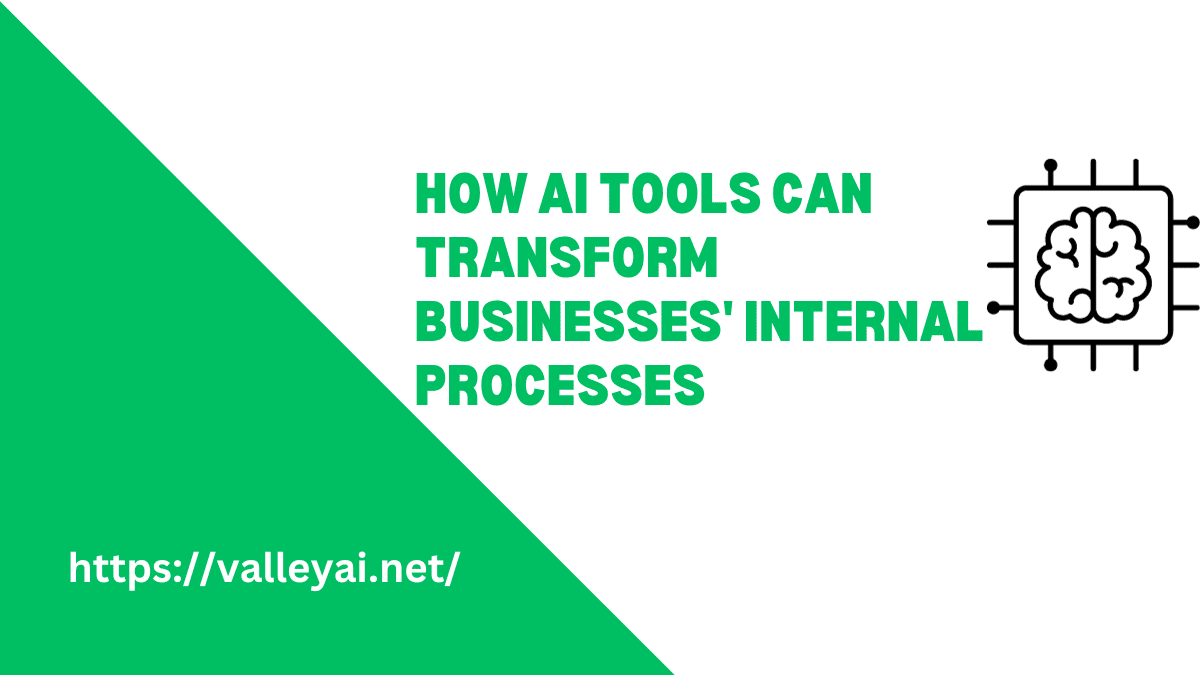Artificial Intelligence (AI) has started to become an inseparable part of businesses’ daily routines. While it may seem like AI is still far away in the future, many businesses have started adopting AI.
Although we are in the early phases of AI development, many internal processes already exist where AI can revolutionize the operation. In this article, I collected the best practices for using AI in businesses, focusing on content creation, coding, online meetings, data analysis, and legal tasks.
Faster content creation
Content creation is a long process. It can take anywhere between two to five hours, depending on how much research is necessary.
How about we do a little math and figure out the time it actually takes to put together a single blog post per week in one month?
Preparing one weekly blog post takes around eight to twenty hours per month. And remember, this number does not include the brainstorming phase, keyword research, and social media-related posts.
And these are just the average numbers. For me, it takes approximately 6 to 10 hours to create a thorough blog post, while I spend between 4 and 6 hours finding the right topic and researching.
You can see that creating content requires significant time, effort, and inspiration.
However, you can shorten the content creation process by using AI tools.
One of the most significant advantages of AI-based solutions is that they greatly decrease the time spent on first drafts. AI tools can create an entire blog post based on a keyword.
While this functionality is pretty useful, it will not save you from adding your experience and knowledge.
Another crucial part of content creation is brainstorming. AI tools can also give you a hand in finding a suitable topic. Once you find your idea, AI can give you a quick overview of what topics you should include and can help you cover every essential point in that specific topic.
AI coding assistant
Code writing is one of the areas where AI can boost productivity. AI coding assistants aim to help developers write code faster and more safely. Essentially, an AI coding assistant can either generate code based on prompts or suggest code for auto-completion while you write code in real-time.
According to Microsoft’s research, developers can perform coding 55.8 percent faster when utilizing an AI assistant. They selected a group with an average coding experience of 6 years and an average coding experience of 6 years and spent 9 hours coding daily.
It means that a developer can save approximately 89 hours in a month by using AI coding assistants. The average developer salary is $108,943 annually in the US, so you can save roughly $60,800 annually on one software developer’s salary if you utilize an AI coding assistant in everyday work.
The development of the AI coding assistant will not likely stop. Recently, Google announced a partnership with Replit, a startup developing web-based coding tools.
More effective online meetings
Businesses have already begun the optimization of their processes with AI. But one field is easily overlooked when it comes to making processes more effective with AI: virtual meetings.
Believe it or not, businesses with less than 50 employees spend an average of $18,000 annually on unproductive meetings. In the case of businesses with over 100 employees, they spend an average of $420,000 per year on unproductive meetings. On average, meetings take up 15% of a business’ collective time, which makes meetings a crucial part of daily work routine.
AI meeting assistants (AI meeting managers) can help you in many ways to reduce wasted money and time to make you more productive. Some of the most popular functions of AI meeting assistants:
Meeting records
AI meeting assistants automatically set up recordings and capture important voice conversations and details. These AI-based tools seamlessly join and record your meetings on Zoom, Microsoft Teams, and Google Meet platforms.
Automated meeting notes
Due to speaker recognition technology, AI meeting assistants can easily transcribe virtual meetings in many languages. This function can save you from the hassle of manually taking notes and allows you to focus on the discussions.
Meeting Summary
AI meeting assistants do not just prepare the meeting notes, but they also take care of sending meeting summaries to the colleagues who missed the call. This ensures that all team members, whether present or not, stay on the same page and remain informed about the outcomes of the meeting.
AI meeting assistants make the process seamless and efficient, allowing teams to maximize productivity.
Schedule meetings
An AI meeting assistant is designed to prioritize and schedule tasks on your calendar. Such tools can calculate weekly tasks, meetings, and total working hours and prepare a customized schedule.
Ultimately, an AI meeting assistant can also help you manage your meetings in an organized way to finish all your tasks faster and get more quality work done.
AI-driven data analysis
We are living in a data-driven world, and AI already has a major impact on data analysis. Why is AI crucial regarding data analysis?
AI tools have the ability to analyze a vast amount of data, find patterns, and identify opportunities or pain points. Such AI-based solutions utilize data mining, statistics, machine learning, and mathematics to create forecasts and predictions based on historical data.
AI can help you in many ways when it comes to data analysis. It can streamline supply chain operations, analyze customer data, and predict leaving, and it can be deployed even in cybersecurity.
Legal operations
AI has transformed businesses across the landscape, shaping each industry in unique ways. Besides many industries, the legal field is also heavily impacted by the evolution of AI. How can AI help in legal tasks?
Contract and legal document review
Based on the Enterprise Legal Reputation (ELR) Report by Onit, 40% of corporate legal professionals spend half of their workday reviewing and handling contracts.
AI tools can already effectively automate the contract and document review process. These tools use AI technology to review documents based on predefined policies and apply machine learning to review the process and understand the contractual context.
Legal research
Doing legal research is a time or money-consuming process, or sometimes both. You can either do it for yourself or hire a lawyer.
However, AI can provide an additional solution to this problem. AI tools are great at handling huge amounts of data. These tools can dive into researching regulations, caselaw, secondary sources, and more to provide you with all the details you might need.
Legal document management
Poor contract management can cost up to 9% of a company’s total revenue. Not to mention how burdensome this process can be. An AI-based legal document management system can save time and money for many departments besides legal. Sales and supply chain teams also handle large amounts of legal documents.
AI legal tools can help you manage and automate workflows across the entire contract lifecycle. These AI platforms use machine learning and can extract key details from the contract, like expiration dates, important clauses or categories, or legal documents.
Endnote
As with all disruptive technology, AI is very divisive. Some choose to ignore its potential and pretend it doesn’t exist. On the other hand, there are people with incredibly high expectations of what AI can achieve in the near future and how it will replace humans.
It is essential to take one step back and evaluate where AI can help you the best and see what limitations of AI might have. The question you should focus on is what tasks you should delegate to AI to allow you to spend more time on the critical tasks and be more productive.
- SaaS Growth Strategies: A Complete Guide for Long-Term Success - May 18, 2025
- How Data Science Is Powering Business Decisions in 2025 - April 17, 2025
- The Future of Data-Driven Networking: Trends and Innovations - March 12, 2025

